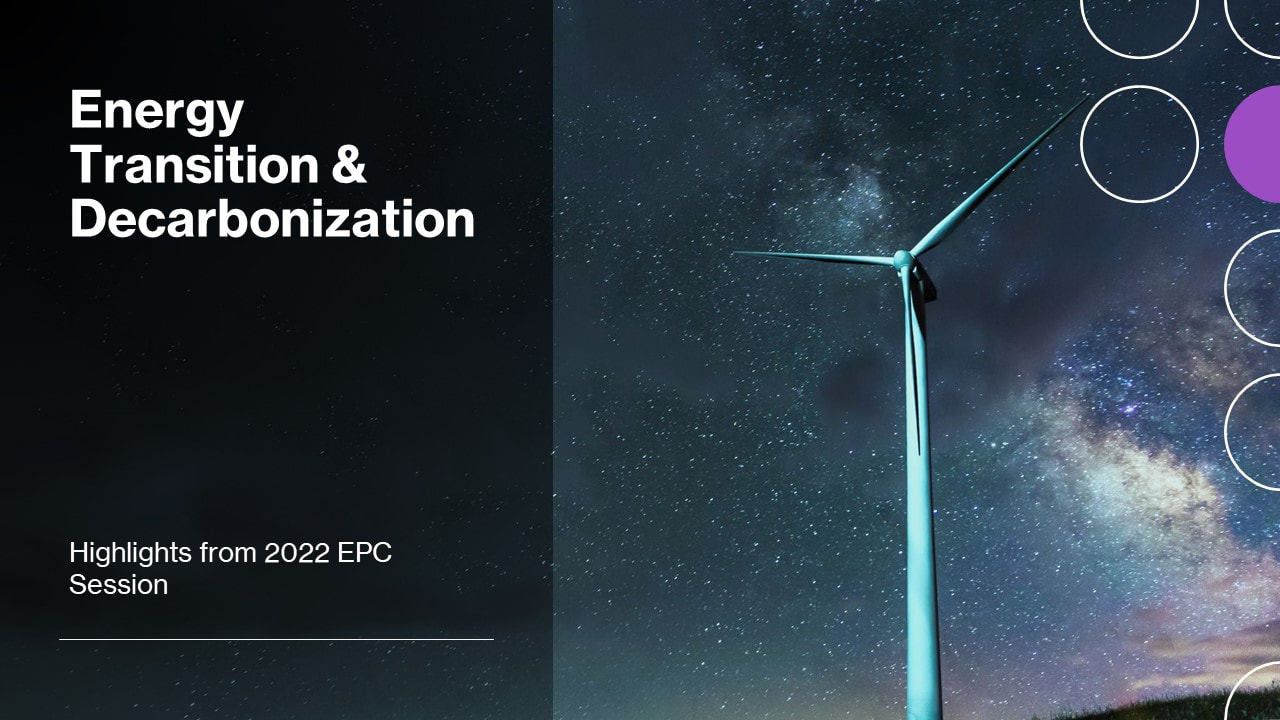- Public opinion in most countries, with a few exceptions, is hardening around the need to do more to address the changing climate.
- Companies are incorporating sustainability into their business strategies fueled by pressure from shareholders, stakeholders, and regulations.
- Rising global population, middle class result in higher demand for energy, materials and minerals placing pressure on land use.
- Humanity will need more energy in the future. But the overall energy business could shrink – in volume and in revenue. Part of it depends on how much of the fossil fuel system gets replaced by technologies that don’t use fossil fuels. A shift to renewables would use less material and less trade.
- The products derived from petrochemicals, including plastics, are likely to be indispensable for a range of low-carbon, energy efficient applications in transportation, buildings, agriculture, medical, and consumer goods. The challenge is therefore how to decarbonize the petrochemical production while still meeting the surging demand.
- Global nature of the industry makes the transition efforts economically challenging.
- Decarbonization is more than simply using cleaner fuels and improving efficiency.
- Changing production processes and systems, developing new infrastructure, developing and deploying new technologies to avoid or capture emissions in ways that are economically sustainable.
- The feasibility of different pathways would depend heavily on the development of, among other things, large-scale renewable energy deployment, green/blue hydrogen technology and infrastructure, carbon capture and storage technologies, electrification of production processes (both new and existing technologies).
- Pathways to decarbonization need to comprehensively address all elements of the chemical industry value chain – including upstream production (extraction, separation, refining etc.), downstream derivatives and end use sectors etc. Significant amounts of carbon are embedded in the final products which may be emitted over time depending on end-of-life disposition. Therefore, plastic recycling will be an essential part of decarbonization.
- Over the next 30 years, worldwide solid waste generation is estimated to increase to nearly 3.4 billion tonnes per year.
- Plastics recycling is challenging because the majority of the plastics cannot be recycled in current systems because of complexity, multi-material, customized, contaminated and have additives. The small percentage that is suitable for recycling within current systems can only be recycled a limited number of times due to degradation and therefore downgraded to lower value products.
- In a circular economy, we want to keep the molecule in play as long as possible and material at an economic value. As a part of the transition, plastics production will need to move from linear model to circularity. This potentially would include measures to manage demand, product design requirements and extensive recycling (mechanical as well as advanced).
- As a society, we have failed to see the challenge holistically, in ways that address diverse forms of materials throughout our system becoming waste. Without looking at this broadly, we will continue to compound the increasing waste issue and have a short-sighted version of system level sustainability.
- Sustainability includes multiple factors and their interactions in a wide array related to environment, social and economic aspects. Focusing solely on the separate parts creates vulnerabilities by shifting risks elsewhere in the system, thus producing unsustainable and undesirable outcomes. Circular systems are regenerative by design.
- A circular economy increases resource-efficiency, keeps materials in use and at their highest value throughout its life, decouples growth from the consumption of finite resources through responsible sourcing, reuse/repair/reman, recycling, and other strategies.
- Geopolitics can potentially result in a strong rationale for moving away from fossil fuel-based systems due to energy security needs. Depending on policy choices, the global energy trade may shrink over time. All these changes suggest that the strategic importance of oil and oil producers will decline. Companies decarbonizing their supply chains. Decarbonization pressure is moving down the chain to small suppliers in countries where there is no government pressure.
- For effective policy, the traditional approaches (carbon pricing, technology subsidies, regulations) may not be enough and would need to be extended through research and development/demonstration funding; support for deploying new technologies and infrastructure; measures to foster new markets for low-carbon materials.
- Resources that U.S. industry can bring to bear including financial resources, technical knowledge, research capacity, and workforce skills that can make it potentially a global leader for industrial decarbonization.
|
During the 2022 Ethylene Producers Conference, I moderated the Panel Session on the subject of “Energy Transition & Decarbonization”. In this blog, I have highlighted key points from the panel session (The panel included Derik Broekhoeff of Stockholm Environment Institute, Rachel Meidl and Jim Krane of Rice University’s Baker Institute for Public Policy).
0 Comments
|
AuthorSanjeev Kapur is Principal Consultant at Apex PetroConsultants. He focuses on consulting/advising olefins based petrochemical businesses. He is a leading expert in petrochemicals and integration. Archives
May 2024
Categories |


 RSS Feed
RSS Feed